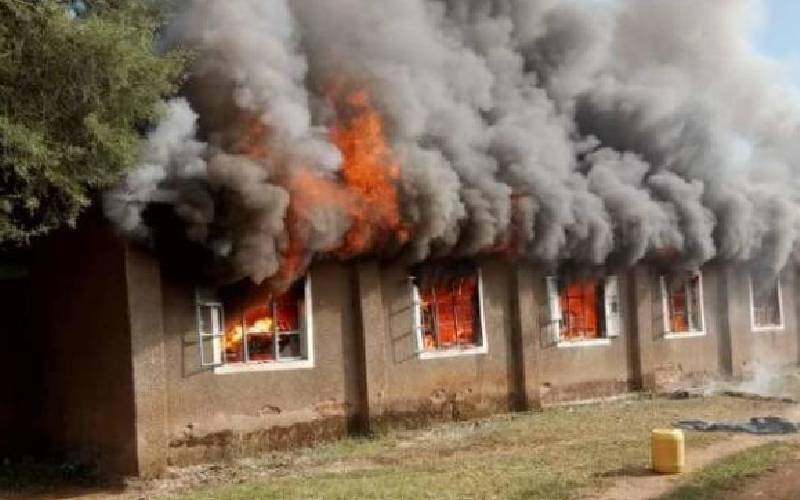×
The Standard e-Paper
Fearless, Trusted News

A dormitory on fire in a school. [File, Standard]
The recent tragic fire incident at Hillside Endarasha Academy serves as a stark reminder that fire, while a useful servant, can become a merciless master. This incident highlights a critical yet often overlooked technology of smoke detectors.